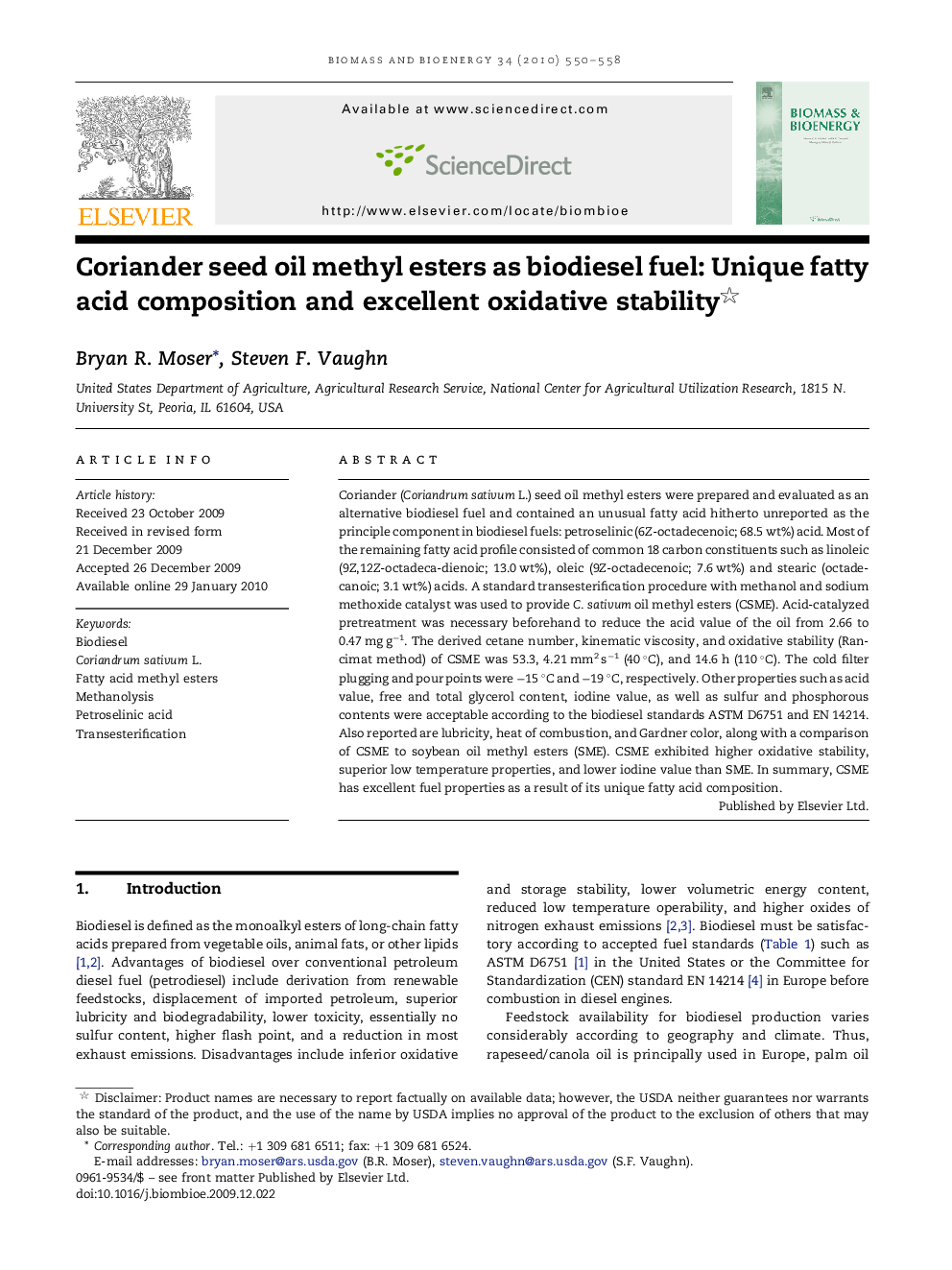| Article ID | Journal | Published Year | Pages | File Type |
|---|---|---|---|---|
| 678501 | Biomass and Bioenergy | 2010 | 9 Pages |
Coriander (Coriandrum sativum L.) seed oil methyl esters were prepared and evaluated as an alternative biodiesel fuel and contained an unusual fatty acid hitherto unreported as the principle component in biodiesel fuels: petroselinic (6Z-octadecenoic; 68.5 wt%) acid. Most of the remaining fatty acid profile consisted of common 18 carbon constituents such as linoleic (9Z,12Z-octadeca-dienoic; 13.0 wt%), oleic (9Z-octadecenoic; 7.6 wt%) and stearic (octadecanoic; 3.1 wt%) acids. A standard transesterification procedure with methanol and sodium methoxide catalyst was used to provide C. sativum oil methyl esters (CSME). Acid-catalyzed pretreatment was necessary beforehand to reduce the acid value of the oil from 2.66 to 0.47 mg g−1. The derived cetane number, kinematic viscosity, and oxidative stability (Rancimat method) of CSME was 53.3, 4.21 mm2 s−1 (40 °C), and 14.6 h (110 °C). The cold filter plugging and pour points were −15 °C and −19 °C, respectively. Other properties such as acid value, free and total glycerol content, iodine value, as well as sulfur and phosphorous contents were acceptable according to the biodiesel standards ASTM D6751 and EN 14214. Also reported are lubricity, heat of combustion, and Gardner color, along with a comparison of CSME to soybean oil methyl esters (SME). CSME exhibited higher oxidative stability, superior low temperature properties, and lower iodine value than SME. In summary, CSME has excellent fuel properties as a result of its unique fatty acid composition.
